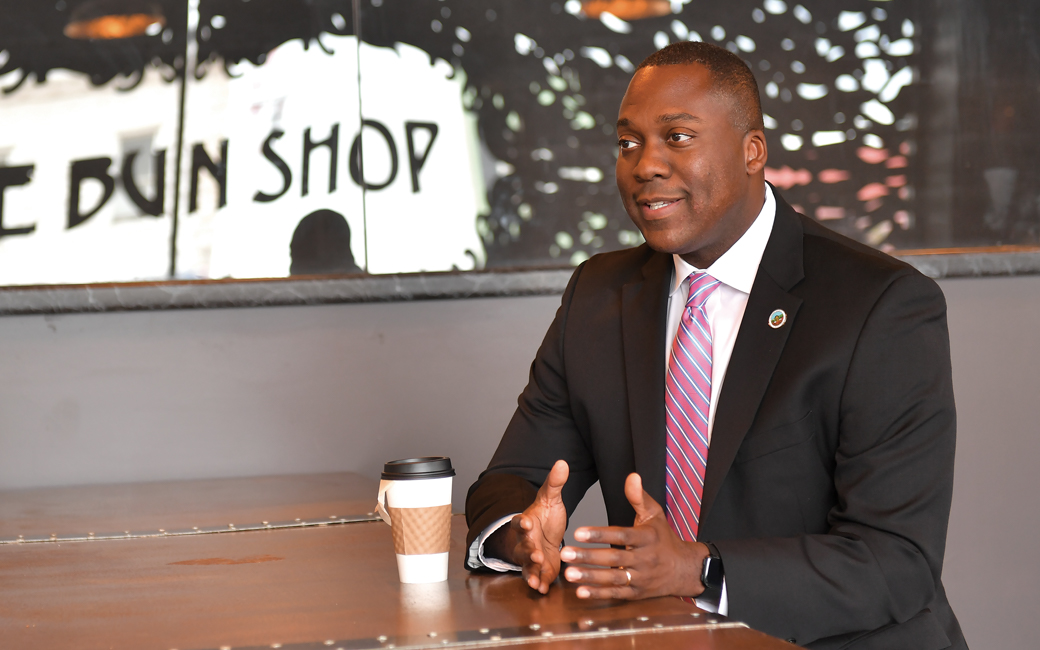Coffee With...Calvin Ball ’97
We spoke with the first African American elected Howard County Executive about politics, philosophy and his most important role.

Q: How do people address you? Mr. County Executive doesn’t exactly roll off the tongue.
A: It depends on how happy they are with me. It varies. Because I’ve been in academia for a couple decades some people call me Dr. Ball. Some County Executive. A lot of people still call me Calvin.
Q: Did you ever run for anything in school?
A: In middle school I aspired for office once. I lost. I didn’t really understand how it all worked. Luckily I’ve learned.
Q: Why did you major in philosophy?
A: At the time I wanted to go into law, and a lot of my advisers told me that I could learn everything about the law after I graduated and to get something that rounds out my education. In philosophy and religion you study debate, argumentation, ethics, logic—all things that would make for a good attorney or judge. I see many of the other disciplines like a sport, whether it’s finance or computer science. I see philosophy like the gym—it allows you to train your mind and look at the world in a different way, to see how you can be the most effective yet creative in anything that you do.
Q: What was your first race?
A: I ran for county council in 2002, and I actually lost. You learn a lot about yourself when you don’t succeed, and I learned a lot about myself and the process. I learned about resilience, about strategic planning. I stayed involved and I eventually was appointed to finish out the term of the person [to whom] I lost. I won my own term in 2006.
Q: What are your priorities during this, your first term?
A: My main goal is to expand opportunities and the quality of life for everyone who’s a resident, business owner, or visitor in Howard County. We have to invest in our school system, our community colleges, and ensure that people have access to them.
Q: What does it mean to you to be the first African American elected Howard County Executive?
A: It says that people of all races, religions, and genders can accomplish anything if they work hard and chart a course of excellence.
Q: How have your thoughts about politics evolved since you’ve been in the arena?
A: I think it starts by asking yourself, what do you want to accomplish? What do you believe in? Once you get to those core answers that will help set your course. Each and every day there are people that want to make their hopes and dreams become realities. I find through the lens of public service we can help those people.
Q: Who are some of your political heroes?
A: On the higher scale, I have people like FDR and JFK, but even to some extent [former Maryland] Governor [William Donald] Schaefer. There will be a lot of times when I’ll call a department head and I’ll let them know my favorite day to get something done is today, and my favorite time to do it is now.
Q: What do you think politicians on the national level could learn by looking at how local politics work?
A: The ability to find mutually agreeable common ground. We all have different perspectives, different ideas, backgrounds, but at the end of the day we all work for the people. Everything doesn’t need to be a battle.
Q: What do you do for fun?
A: Spend time with my daughters Alexis and Alyssa. I call them the A-Team. Of all the hats that I wear—county executive, mentor, friend, educator—dad is the most important.
